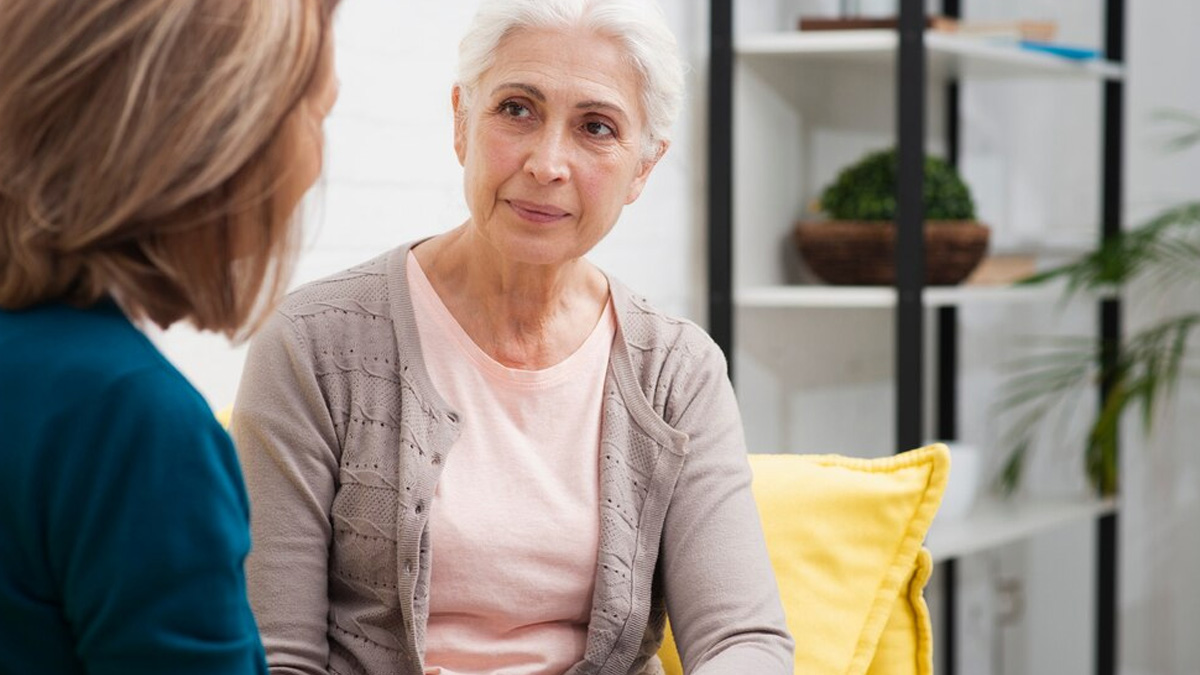
When it comes to women’s health, menstruation and menopause are two major reproductive milestones, where one marks the beginning of the menstrual cycle and the other marks its end. But despite their significance, both continue to face stigma, often making open conversations difficult.
Table of Content:-
While discussions around periods are slowly becoming more common, menopause remains an unexplored topic in several households. Apart from those experiencing it, only a few truly understand the challenges menopause brings with it, let alone show support during this period. And so it is crucial to break this silence around menopause to ensure that women receive the care and understanding they deserve.
Also Read: Can Menopausal Hot Flashes Can Make Your Head Steam, Expert Weighs In
Understanding Menopause And Its Key Symptoms

According to the World Health Organization (WHO), menopause is considered to have occurred "after 12 consecutive months without menstruation," with no other obvious cause.
Menopause is a stage in a woman's life wherein she stops having menstrual periods and can no longer get pregnant, as the ovaries no longer release eggs.
Natural menopause generally occurs between the ages of 45 and 55. Some women may experience it earlier, before the age of 40, also called premature menopause. This can occur due to certain chromosomal abnormalities, autoimmune disorders, or other unknown causes, as per the WHO.
Common symptoms of menopause:
- Hot flashes
- Night sweats
- Irregular periods
- Vaginal dryness
- Difficulty sleeping
- Mood changes
- Mental health challenges
- Low libido
- Pain during sexual intercourse
- Urinary incontinence
Why Conversations Around Menopause Are Essential For Menopause

"Some women assume that menopause is merely something to be endured. Even though we've come a long way in our understanding of menopause, some still perceive it unfavourably and as something that should not be discussed," Dr Sameep Bhujbal, Consultant—Gynaecology, Jupiter Hospital, Baner, Pune, tells the OnlyMyHealth team.
As a result, many women may suffer through their symptoms rather than seek treatment from their healthcare professional.
The WHO suggests that menopausal symptoms can be disruptive to women's personal and professional lives, and changes associated with menopause will affect their health as they age. This is why care not just during menopause but also in the perimenopausal stage plays a crucial role in aiding healthy ageing and improving quality of life.
Also Read: From Mood Swings To Joint Pain: How Low Oestrogen Affects Your Body
The Need To Address Misconceptions About Menopause
Another reason to encourage more conversations about menopause is to dispel the many myths and misconceptions surrounding it. Dr Bhujbal lists and debunks some of the common myths about menopause:
Myth: The menopausal experience is the same for everybody.
Fact: Few people go through menopause in the same manner. Not everyone has the same symptoms or levels of intensity.
Myth: Menopause lasts only a brief time.
Fact: For most women, the menopausal transition lasts several years.
Myth: Menopause is awful.
Fact: Most persons going through menopause have mild to severe symptoms. Even for individuals who have more painful, disruptive symptoms, menopause may be quite liberating when considering some parts of it.
Myth: Menopause destroys your sexual desire.
Fact: Menopause does not necessarily mean the end of your sexual desires. You can still enjoy a satisfying intimate life. For some people, being free of periods and birth control might seem freeing and even more pleasing.
Steps To Normalise Discussions Around Menopause

Menopause is a natural phase of life. However, many see it as something negative due to the prejudice, says Dr Bhujbal.
To change this, we need open conversations that involve everyone from friends and family to colleagues at work.
Education and awareness play a crucial role in normalising menopause and helping women seek proper treatments for their symptoms.
According to the doctor, healthcare professionals can take up various responsibilities, including promoting patient education and preventive actions, teaching menopausal women how to eat well and maintain a healthy weight, and encouraging them to exercise frequently, to quit smoking, and to receive systemic or local oestrogen treatment if symptoms indicate a need.
Moreover, there is a need for men to be more informed and aware about menopause. Dr Bhujbal says, “Many men are unaware of their spouses' feelings and continue to do what they have always done. This may be a period when a partner requires further reinforcement that she is loved and that her spouse still finds her beautiful.”
“Whether a woman chooses Hormone Replacement Treatment (HRT), complementary therapies, or just wants more time alone or to pursue her hobbies, it is critical for both partners to view menopause as an evolution of their relationship—and one that may lead to great outcomes,” the doctor concluded.
Also watch this video
How we keep this article up to date:
We work with experts and keep a close eye on the latest in health and wellness. Whenever there is a new research or helpful information, we update our articles with accurate and useful advice.
Current Version